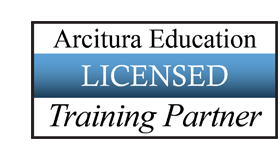 The SOA Certified Professional (SOACP) program is dedicated to excellence in the field of SOA and service-oriented computing. Through a series of seasoned course modules and exams, IT professionals have the opportunity to obtain a number of different certifications to recognize their accomplishment of gaining project-ready SOA proficiency.
The SOA Certified Professional (SOACP) program is dedicated to excellence in the field of SOA and service-oriented computing. Through a series of seasoned course modules and exams, IT professionals have the opportunity to obtain a number of different certifications to recognize their accomplishment of gaining project-ready SOA proficiency.This vendor-neutral program was developed in cooperation with best-selling SOA author Thomas Erl and several major SOA organizations and academic institutions. Through the involvement of an independent education committee, course contents and certification requirements are constantly reviewed and revised to stay current with developments in the service-oriented computing industry.
We offer the following certifications:
Certified SOA Professional
A Certified SOA Professional has mastered the fundamental topic areas pertaining to SOA and service-oriented computing, and has met minimum SOACP qualifications by demonstrating proficiency in at least one additional area.
To achieve this certification, the following exams must be completed with a passing grade:
- Exam S90.01: Fundamental SOA & Service-Oriented Computing
- One additional exam.
The Certified SOA Professional designation can be used as a standalone accreditation to verify competency in fundamental and one or more chosen skill-sets. This certification can also be used as an interim accreditation for IT professionals pursuing one or more specialized certification tracks.
Certified SOA Architect
A Certified SOA Architect has demonstrated proficiency in the mechanics of SOA through the physical design of service-oriented technology architectures, service-oriented solutions, and related infrastructure.
To be considered an expert in this field requires a solid understanding of the service-orientation design paradigm including all related design principles and the effects of their application.
Fundamental SOA concepts and terminology need to become second nature to the SOA Architect and must be further supplemented with exposure to relevant SOA technologies. The different forms of service-oriented technology must also be fully understood, including the dependencies that exist between architectural levels.
SOA-certified architects will need to be prepared for a variety of design challenges and therefore must be proficient with the use of industry design patterns and service-oriented design processes. They must furthermore have an appreciation of how service design fits into the overall SOA project delivery lifecycle and how design approaches and techniques may ultimately affect service governance.
To achieve this certification, the following exams must be completed with a passing grade:
- Exam S90.01: Fundamental SOA & Service-Oriented Computing
- Exam S90.02: SOA Technology Concepts
- Exam S90.03: SOA Design & Architecture
- Exam S90.08: Advanced SOA Design & Architecture
- Exam S90.09: SOA Design & Architecture Lab
Note that all certification requirements and course contents are reviewed and revised quarterly to stay in alignment with industry developments.

